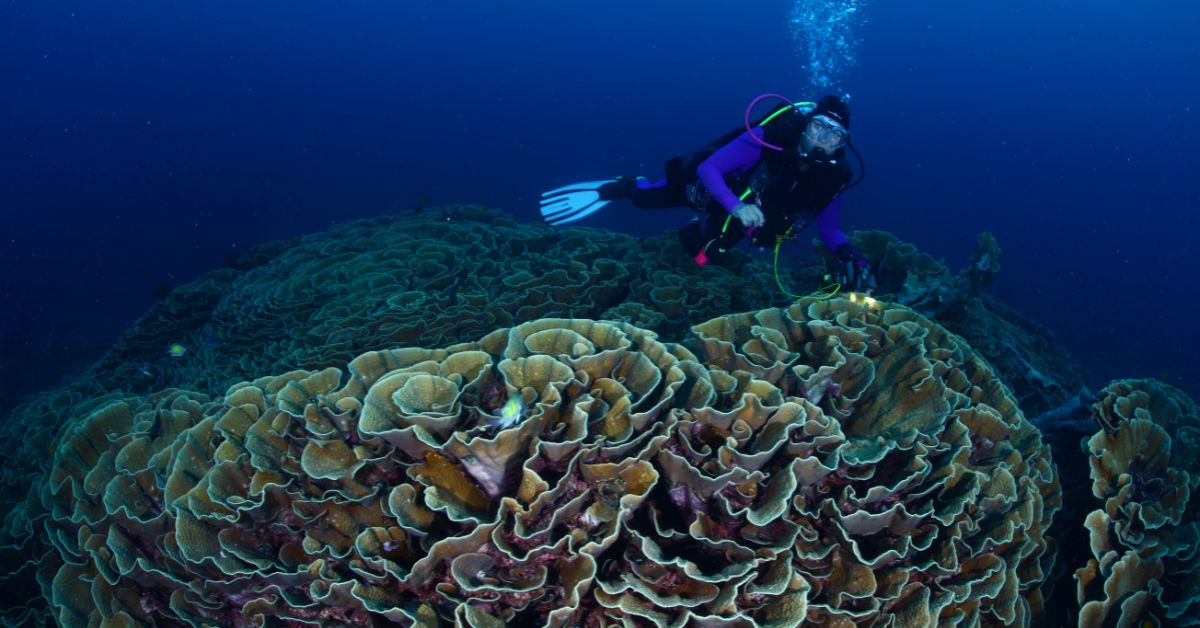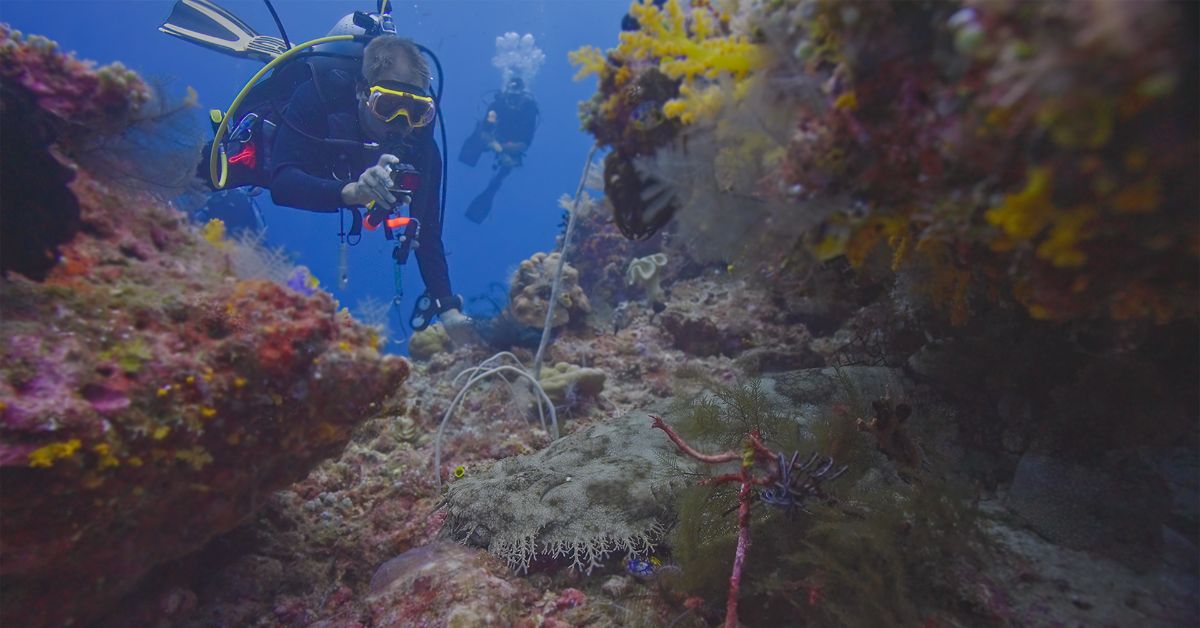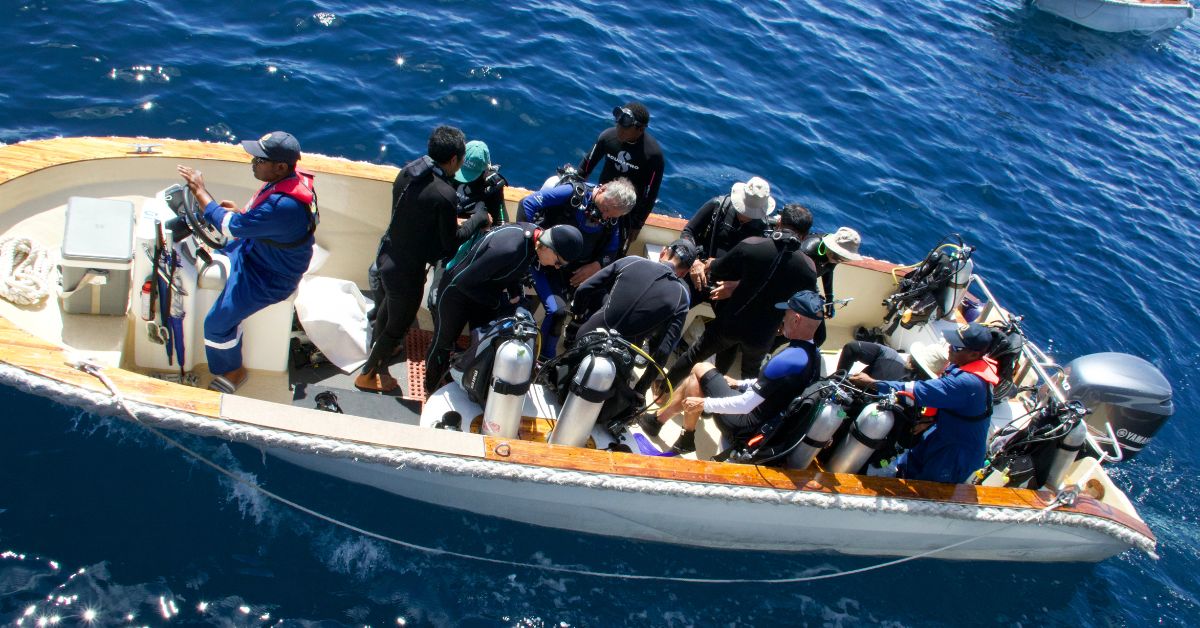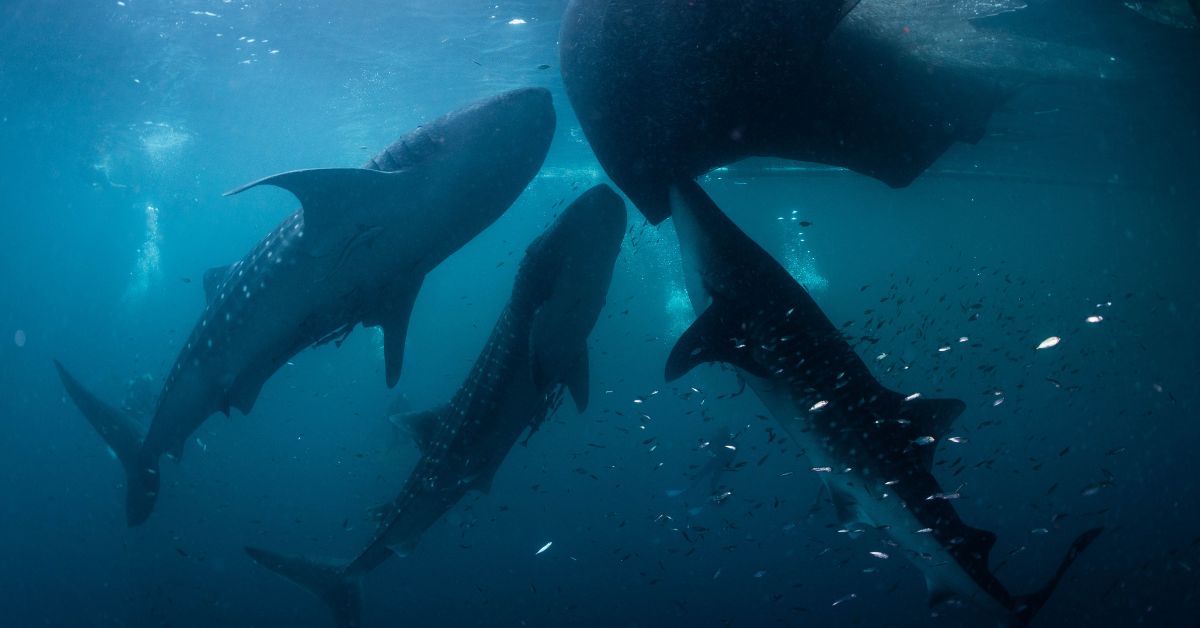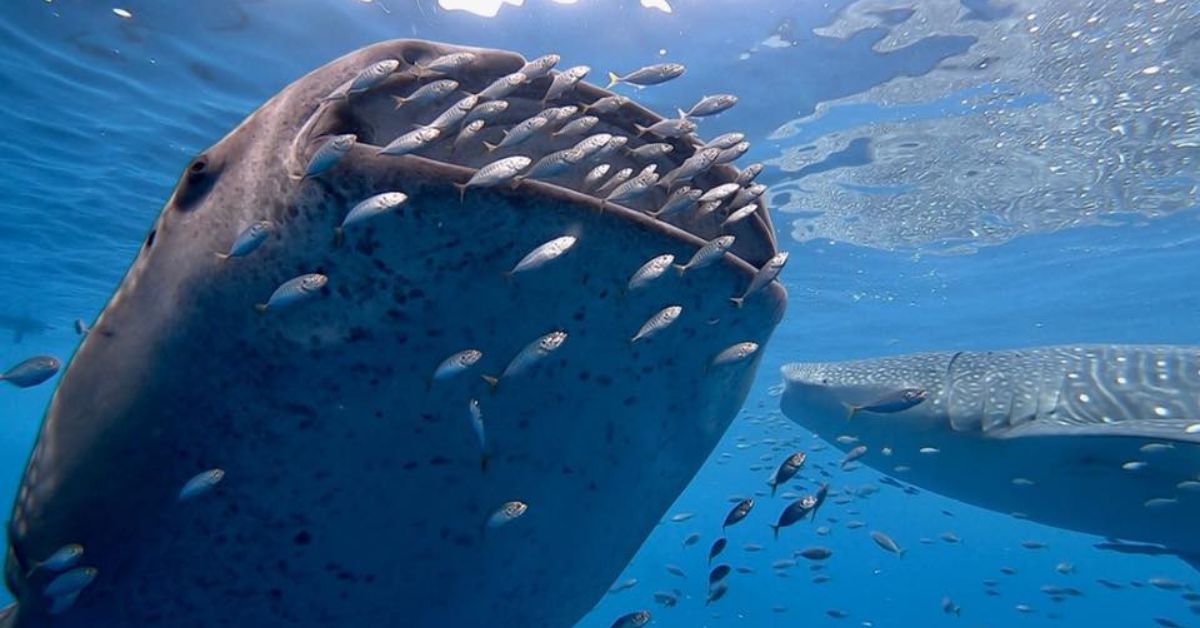When planning a scuba diving trip, we may not initially consider how important weather conditions are. However, weather impacts visibility, currents, and marine life interactions, all of which determine the success of your underwater adventure. This guide to assessing weather conditions before diving will equip you with the knowledge to improve your safety and enjoyment in the water.
Watch the Local Weather Channel
On the day you plan to go scuba diving, watch the local weather channel for a detailed report on wind speeds, wave heights, and currents. This information provides a comprehensive picture of what’s happening above and below the surface, helping you decide the best times for your dives and avoid challenging conditions.
Additionally, many mobile local weather services provide alerts for sudden weather changes. If you’re on a scuba diving trip, turn on these notifications to stay updated on any shifts in conditions.
Understand Key Terms
When you watch the weather report, the meteorologist may use terms such as:
- Swell: A series of long, rolling waves that move continuously without breaking.
- Tide: The regular rise and fall of the ocean caused by gravitational forces from the moon and sun.
- Fetch: The distance that wind has been blowing over a body of water, which affects wave size.
- Period: The time it takes for two successive waves to pass a given point.
- Currents: The flow of water in a particular direction, influenced by tides, winds, and other factors.
Knowing these terms will help you interpret weather reports accurately and determine how they may impact your diving experience.
Know the Types of Weather To Watch For
While some weather, such as fog, may be bad on land, it won’t necessarily impact underwater adventures. However, heavy rain or storms can pose significant risks for scuba divers. Below are some conditions you should be wary of.
Rain
Rain is a common weather condition that can greatly affect diving conditions. Heavy rain can create rough seas, while light or intermittent rain may not have much impact on the water surface. It is important to always check the forecast for any chance of heavy rainfall, as this can reduce visibility underwater.
Thunderstorms
A thunderstorm can bring the dangers of heavy rain and lightning. It can also cause strong winds, which can create choppy and dangerous conditions for diving. If you are planning a dive, and the forecast shows thunderstorms, it is best to postpone your trip until the weather passes.
Strong Winds
Windy conditions pose a navigation challenge on the surface and create strong currents underwater, making it difficult to control your movements. High winds can also create larger waves and swells, making it harder to enter and exit the water safely.
Tides
Tides are another important factor to consider when assessing weather conditions before diving. High tides can create strong currents, while low tides can lead to decreased visibility due to sediment stirring up from the bottom. Planning dives around slack tide, the time between high and low tides when there is minimal current, is usually best.
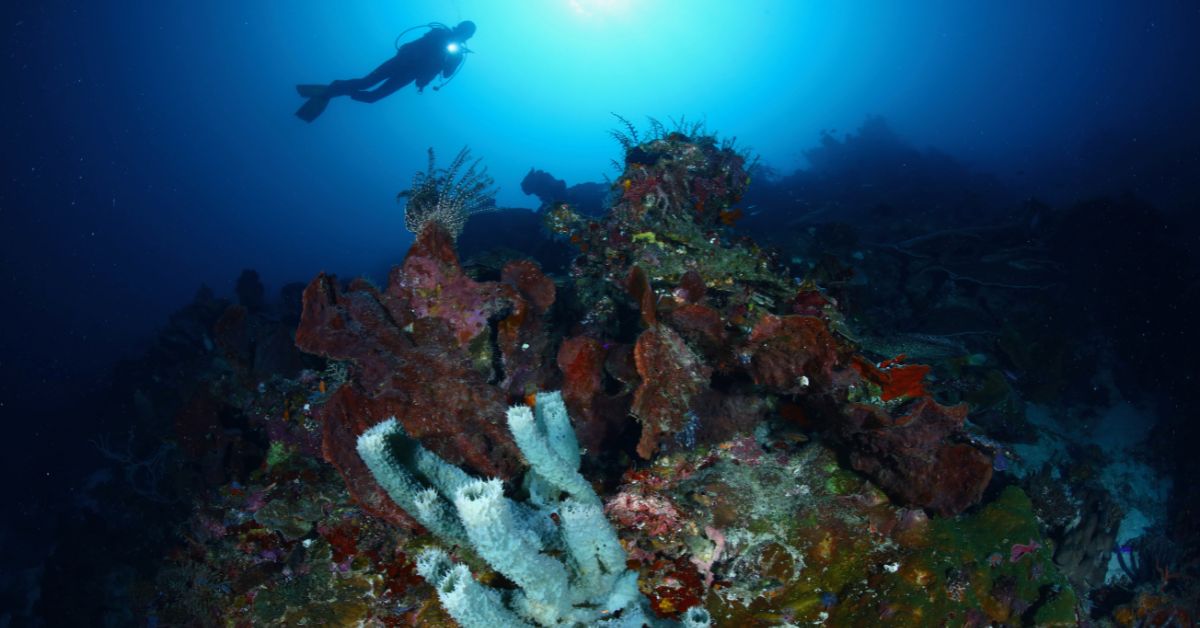
Consider Water Temperatures
Water temperature plays a vital role in your comfort and safety while diving. If it’s rainy, clouds will block the sun and may result in cooler water temperatures. Alternatively, strong winds can cause upwelling—cold water rising to replace warm surface water—leading to unexpected temperature drops.
As you evaluate the weather report, consider its impact on your dive. If you can still safely enter the water, ensure you have the appropriate wetsuit to keep you warm; you may need a thicker one for colder water.
Talk to Dive Professionals
When diving with a company, their main priority is keeping you safe. Your dive instructors or guides can provide valuable insights into weather conditions and how they may impact your dives. They can also identify potential hazards, such as strong currents or sudden weather changes, and take necessary precautions.
Moreover, dive instructors understand local weather patterns and can advise on the best times for diving based on their knowledge and experience. They may be able to bring you to a different dive site or notify you about a different time of day for optimal weather conditions.
Ask Questions
Ask questions if you have any concerns or uncertainties about the weather conditions. Talk to other divers, instructors, or dive operators for advice. They may have valuable insights to help you decide when and where to dive.
Pay Attention to Underwater Animals
Another tip for assessing weather conditions before diving is to observe marine life behavior. Some animals, such as fish and turtles, have been known to detect changes in weather conditions before they occur.
If you notice a sudden increase or decrease in the number of fish, they may be seeking shelter ahead of a storm or strong currents. Similarly, seeing turtles basking on the surface instead of diving deeper could indicate a change in water temperature or increased currents. Paying attention to these signs can help you anticipate changes in weather conditions during your dive.
Watch the Clouds
While meteorological reports give you an idea of weather conditions, they’re not always 100 percent accurate. When you’re on the liveaboard, watch the clouds for any changes in color or density. Dark, ominous clouds can indicate a storm approaching, while scattered, white clouds may signal more calm and stable conditions.
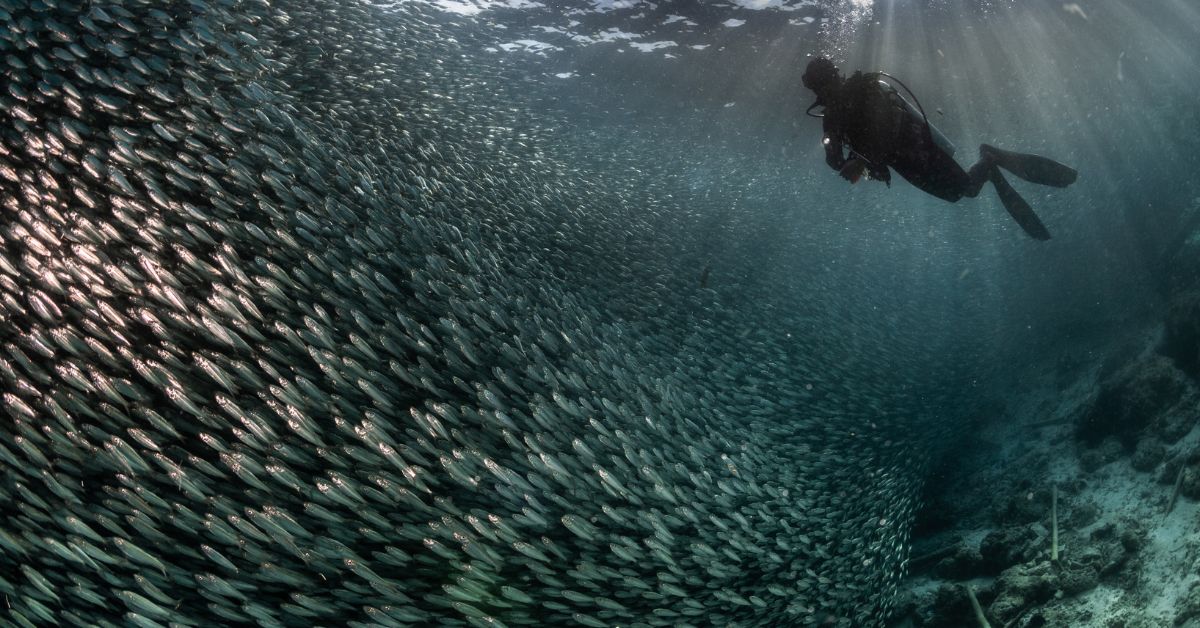
Prepare for All Situations
Even with thorough research and planning, weather conditions can change unexpectedly. You should always have a backup dive site in mind if your original location becomes unsafe due to changing weather patterns.
Additionally, ensure you have the gear and knowledge to handle various weather scenarios. For instance, strong winds may warrant changing entry and exit points or adjusting your depth underwater.
Communicate With Your Dive Buddy
If you or your dive buddy notice a change in underwater conditions, immediately communicate it to your guide or instructor. You may have to make an emergency ascent and return to the boat.
Follow Your Best Judgement
Ultimately, your safety is in your hands when diving in varying weather conditions. It’s important to thoroughly understand the potential risks and make informed decisions based on your experience and comfort level. If you feel uncomfortable with the conditions, trust your instincts and postpone or cancel the dive.
Plan Your Scuba Diving Adventure
Proper planning and preparation allow you to practice safety while enjoying an incredible scuba diving adventure.
Dewi Nusantara offers the best dive liveaboard experiences in Indonesia. Our Indonesian liveaboard will bring you to incredible locations, such as Triton Bay, the Forgotten Islands, Raja Ampat, and more. Plan your trip with us, and get ready for an unforgettable diving adventure.


